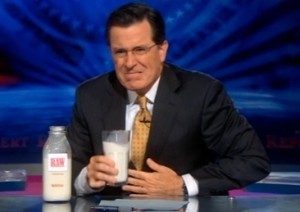In late 2014, three children in the Australian state of Victoria developed hemolytic uremic syndrome linked to Shiga-toxin toxin producing E. coli in unpasteurized bath milk produced by Mountain View Dairy Farm. One child died, and two others developed cryptosporidiosis.
 The Victorian government quickly banned the sale of so-called bath milk, which although labeled as not fit for human consumption, was a widely recognized way for Australian consumers to access raw milk.
The Victorian government quickly banned the sale of so-called bath milk, which although labeled as not fit for human consumption, was a widely recognized way for Australian consumers to access raw milk.
What followed was a despicable whisper campaign that the child who died had an underlying medical condition, it wasn’t Shiga-toxin producing E. coli (STEC), farmers were losing access to lucrative markets – anything but the basic and sometimes deadly biology of STECs and everything involving fantasy and fairytales.
Victorian Dairy farmer Vicki Jones was told in 2014 by the coroner that raw milk was the likely cause of death of a three-year-old boy in 2014.
The milk was ‘raw’, or unpasteurised, and Ms Jones’ Mountain View Dairy Farm had been selling it as bath milk — a cosmetic product labelled ‘not fit for drinking’.
Ms Jones said she told the officer she would immediately remove the milk from the shelves of local stores.
“And he said to me, ‘No, no, no, don’t do that. You’ve done nothing wrong and all your labelling is right’.”
In hindsight, Ms Jones said this response “was really bizarre” — as was the decision to wait months before telling her about the cases.
But then the health officer told her a three-year-old boy had died after drinking the bath milk.
“It was the most devastating news that you could possibly imagine ever getting,” she said.
“I was mortified, we were doing the raw milk because people wanted it.”
Or because you contributed to promoting BS.
 A Gippsland MP, the father of the child who died, and evidence presented to the coroner have all questioned how the cases were managed and suggested other contributing factors were overlooked.
A Gippsland MP, the father of the child who died, and evidence presented to the coroner have all questioned how the cases were managed and suggested other contributing factors were overlooked.
Mark Wahlqvist, an Emeritus professor of medicine at Monash University and former president of the international union of nutrition sciences, said, “Raw milk, unpasteurised milk, is not safe enough to be in the public domain.”
Professor Wahlqvist said he was open to new research but at present, found campaigners for raw milk to be more than unconvincing.
“When people for conspiratorial reasons rather than scientific reasons, think that vaccination is a problem or that pasteurisation is a problem,” he said.
“We have a science communication problem in this country and it needs science leaders.”
